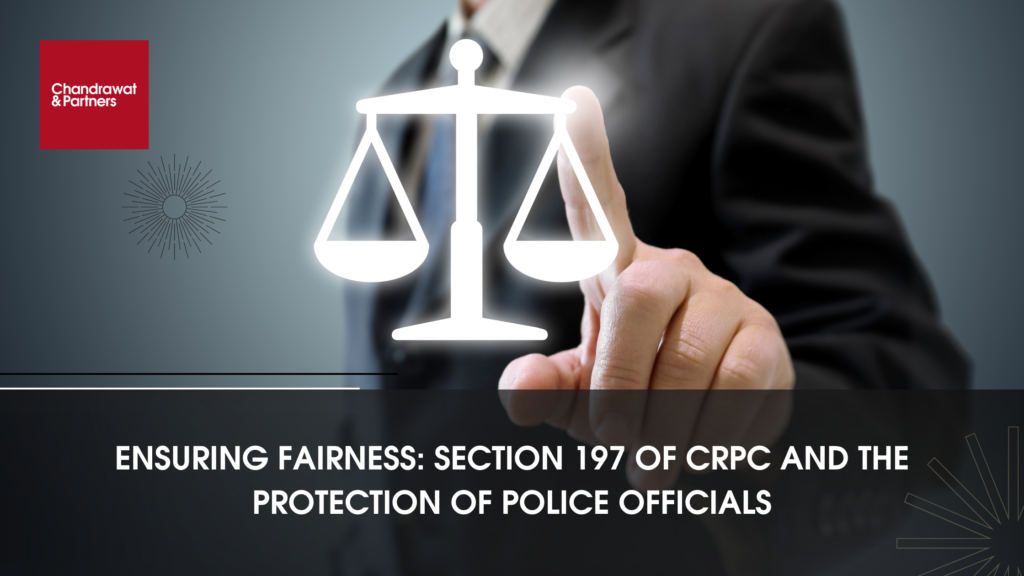
Share :
BACKGROUND
The single-judge bench of the Hon’ble High Court of Kerala, headed by Justice Ajithkumar, delivered the judgment in the case of “Joji Joseph v State of Kerala & Connected Matters”, subsequently putting the halt on the 28 years of litigation.
The judgment is the front burner, as it has expanded the scope of section 197 of the Code of Criminal Procedure, 1973 (the “CrPC”) and granted immunity to the police personnel. The Hon’ble court acquitted the accused on the sole ground that the act committed by them was in accordance with the duties assigned to them. Hence, the sanction is pivotal in order to prosecute them.
FACTS
The accused in the present case barged into the complainant’s house while he was sitting with his family member and manhandled him. The complainant alleged that he was forcefully taken to the jeep & while on the way, he was physically tortured by the police official. However, the accused was released on the same night after being subjected to a medical examination.
In response to the action of the accused, the complainant initiated a trial, and the accused was convicted under sections 452, 341 and 323, read in conformity with section 34 of the Indian Penal Code, 1860 (the “IPC”). The accused preferred an appeal on the grounds that the mandatory requirement of obtaining sanction mentioned under section 197 of IPC was not fulfilled; hence, the conviction is not valid. Accordingly, the appeal was allowed and the accused was acquitted. To seek justice, the complainant knocked on the doors of the Hon’ble High Court.
ISSUES INVOLVED
- The critical issue in the matter pertains to the mandate of sanction required under section 197 CrPC and whether it is necessary to obtain sanction from the government before convicting a police official.
- Whether the acts committed by the accused falls under the ambit of discharge of his official duty.
PROVISIONS INVOLVED
The case revolves around section 197 of CrPC, which states that no court shall take cognizance of offence in order to prosecute judges or public servants except with the previous sanction.
DECISION
The Hon’ble High Court, while deciding on the matter, discussed the scope of section 197 CrPC by stating that the purpose of the inclusion of such section was to safeguard the public servants from the false, mala fide and vexatious prosecution. But they can be prosecuted with the previous sanction of the government. However, in the present case, the accused was convicted without obtaining the sanction which is a mandatory requirement under the said section. Hence, the conviction is not in consonance with the provisions.
The matter at hand does not cast doubt upon the judicial certainty surrounding the protection afforded to the Kerala Police under section 197 of CrPC. Rather, the crux of the issue lies in determining the scope of protection offered to the Kerala police while carrying out their official duties to maintain law and order. To ascertain this, the Hon’ble Court referred to the case of Rizwan Ahammed Javed Shaikh v. Jammal Pattel, where the apex court laid down that protection will be granted to the member of Kerala police if they have committed an offence while acting or purporting to act in the discharge of their official duty.
The court placed reliance on the term ‘acting or purporting to act in discharge of their official duty’ while referring to the case of B.Saha and others v. M. S. Kochar and opted the wide interpretation by stating that the offence that the accused person is alleged of committing must be connected, in some way, to the performance of their official duties in order to avail the protection granted under section 197 of CrPC.
A reasonable connection must be established between the conduct and the execution of official duties; the act must be related to the obligation in such a way that the accused may reasonably assert rather than make up or fabricate the circumstances.
The court found that the accused took the complainant for the purpose of conducting a medical examination for a pending case. Thus, it affirms that the accused acted in the discharge of their official duty. Hence, the sanction is pre-requisite for the conviction and non-compliance of such will render the conviction invalid.
ANALYSIS
The Hon’ble High Court’s ruling underlines that laws must be interpreted and applied in ways that promote justice, equality and fairness. The case highlighted the interpretation and application of Section 197 of CrPC. The court’s decision emphasized the necessity of obtaining prior sanction for prosecuting police officials accused of an offence allegedly committed in the course of their official duties. The intention behind the verdict is to protect the public servant from false, frivolous and vexatious prosecution. The court also emphasized that no public servant shall be granted immunity for the acts done which are not discharged in official duty. Thus, the court delivered the judgment in favour of the accused because the court believed that their act was in the discharge of their official duties.
For more information or queries, please email us at
[email protected]



